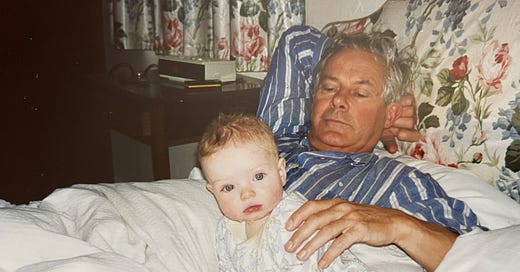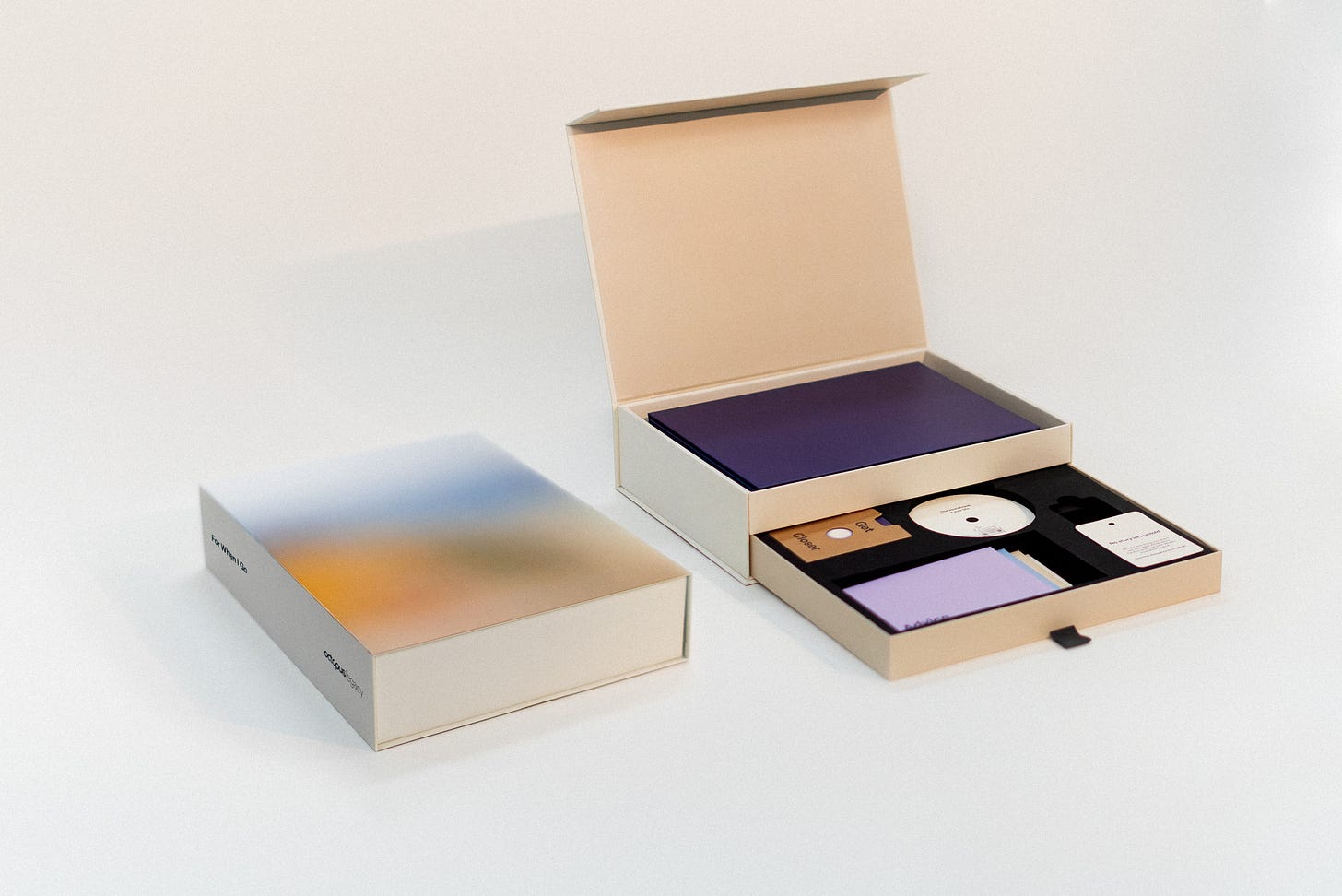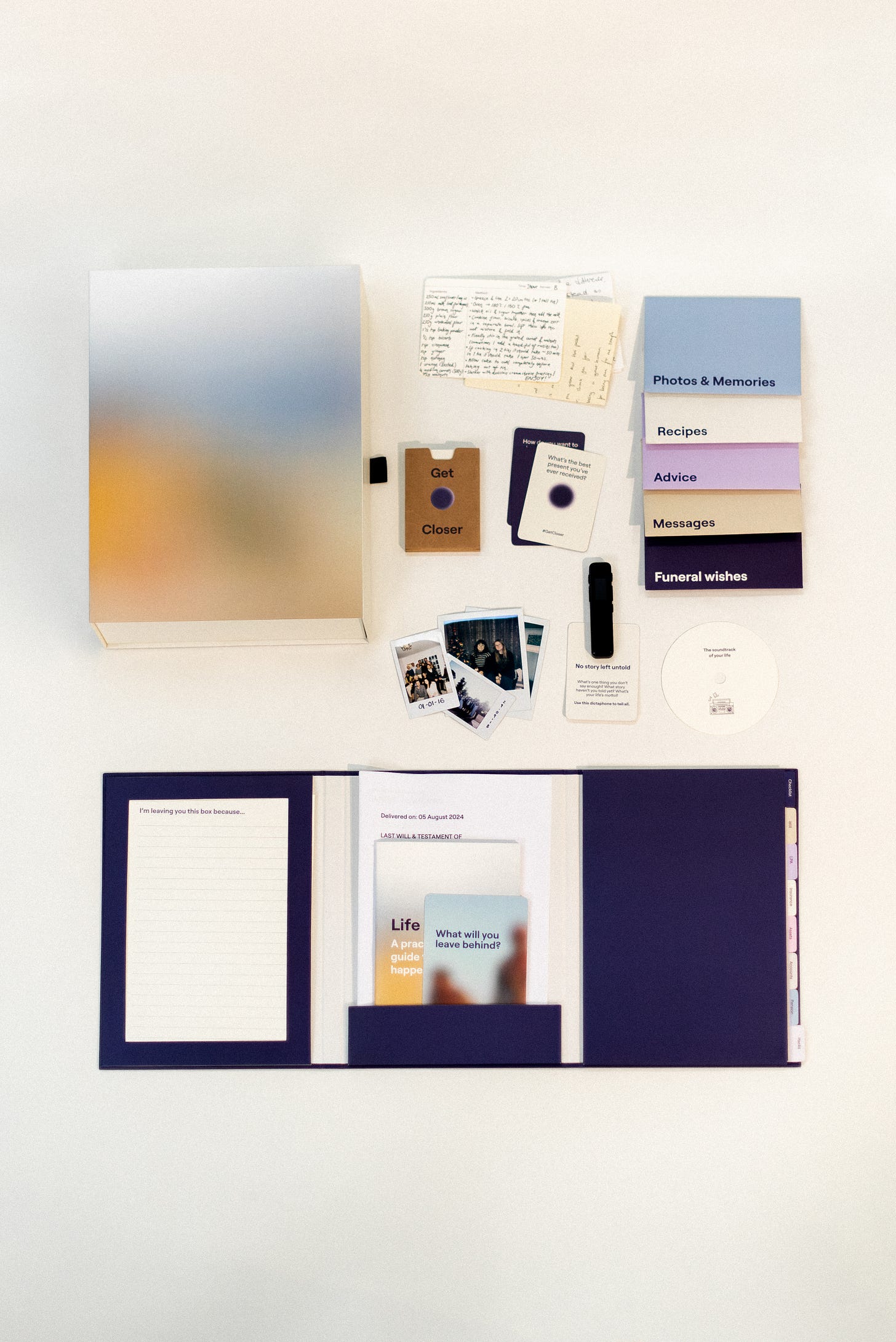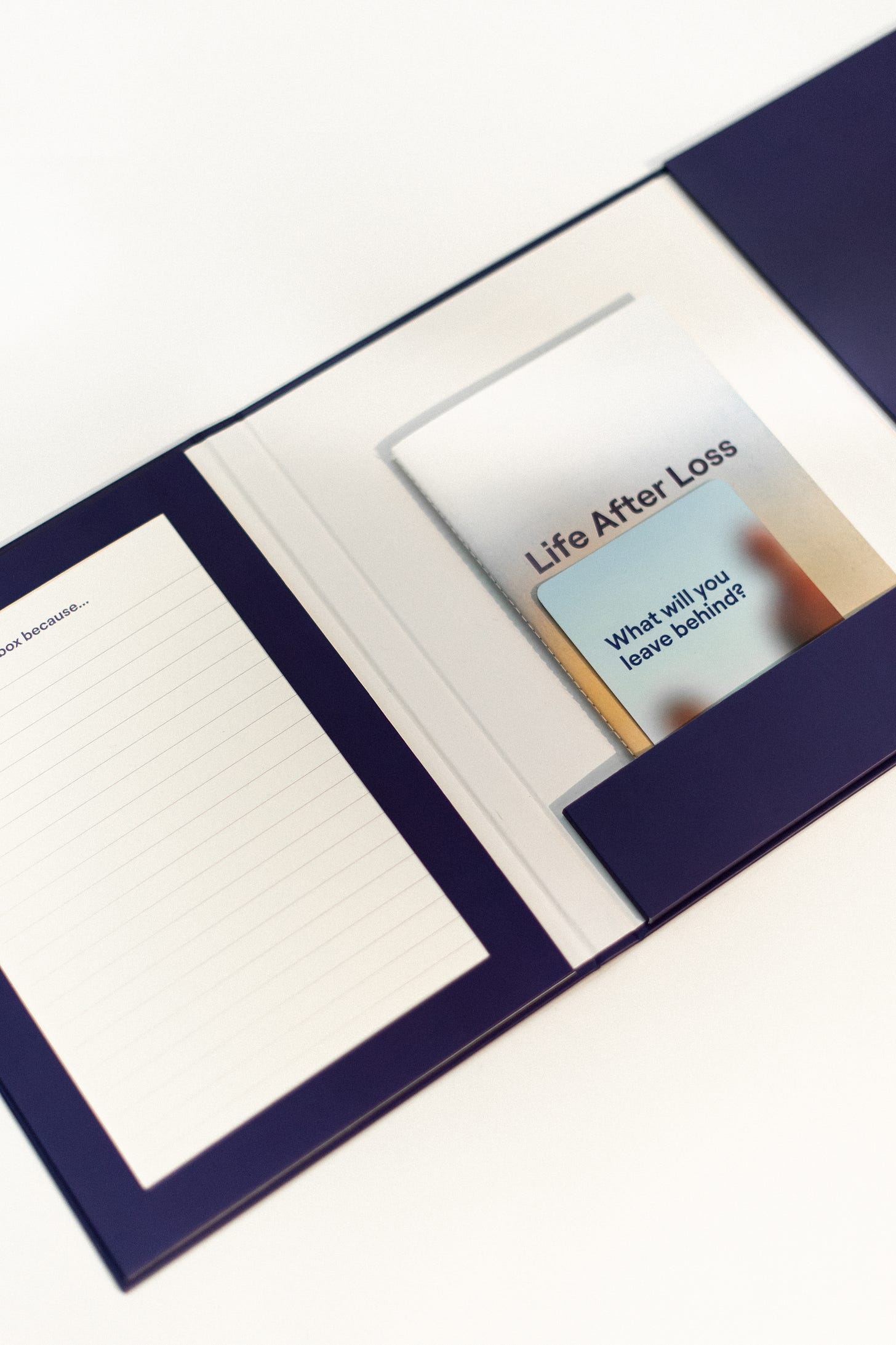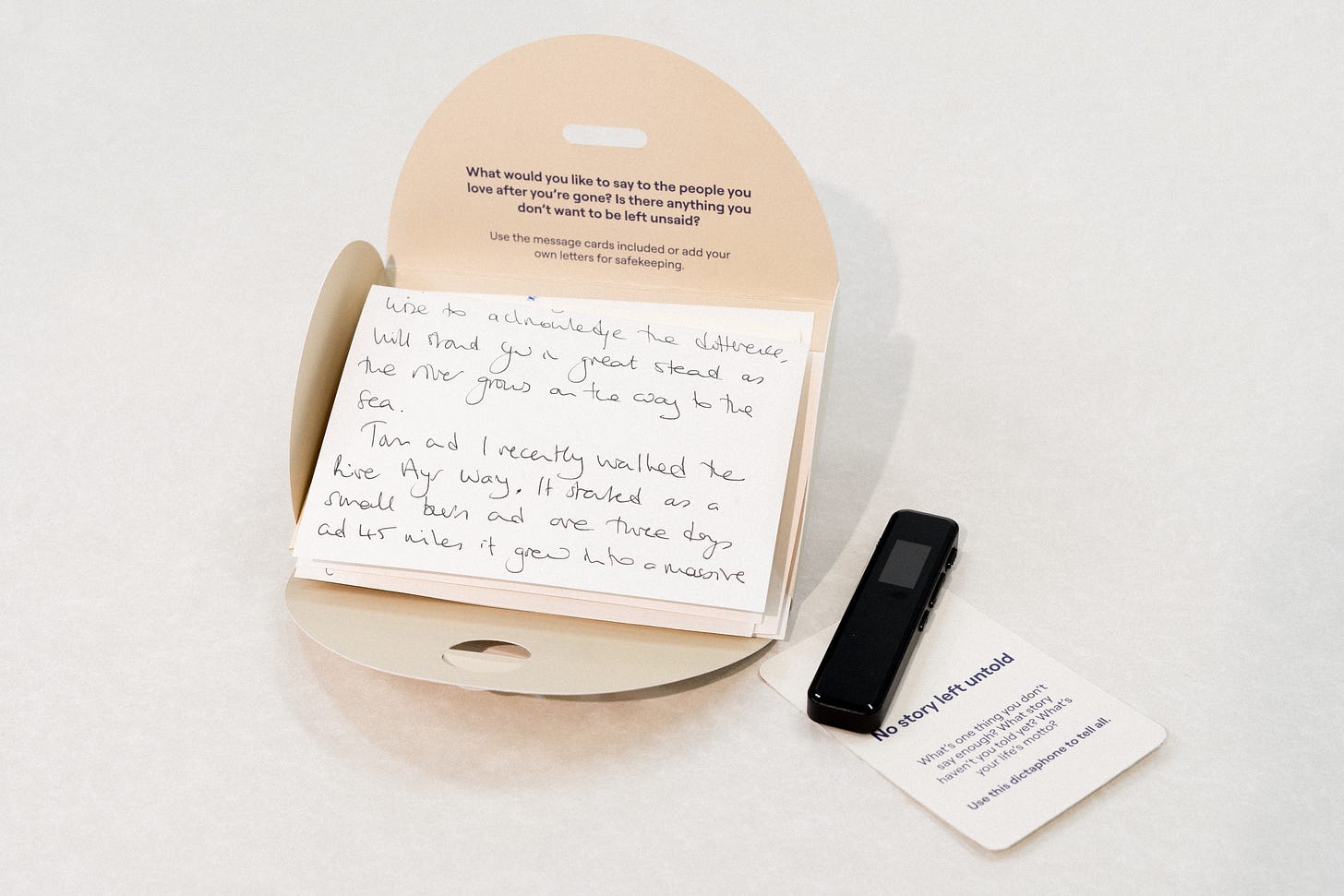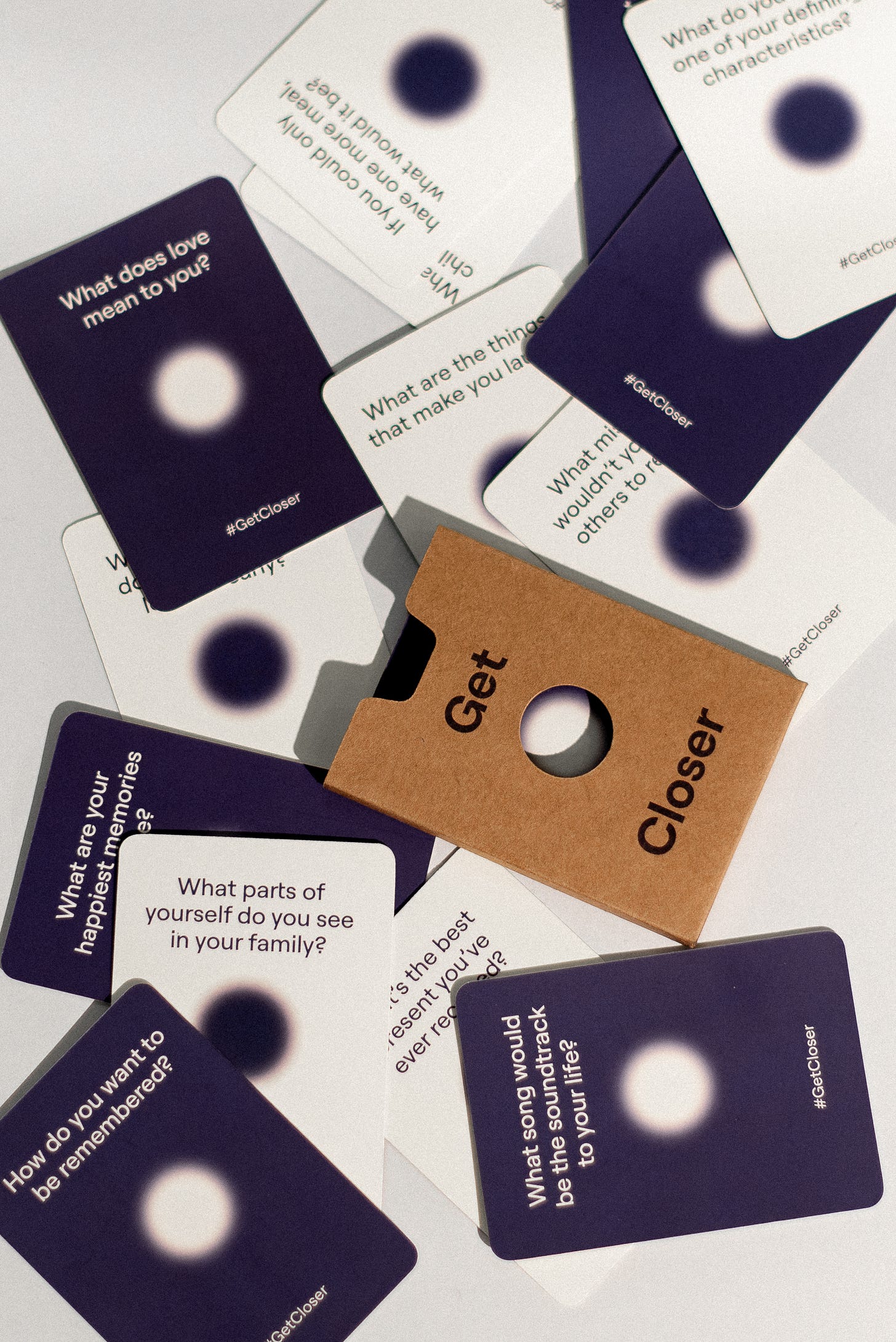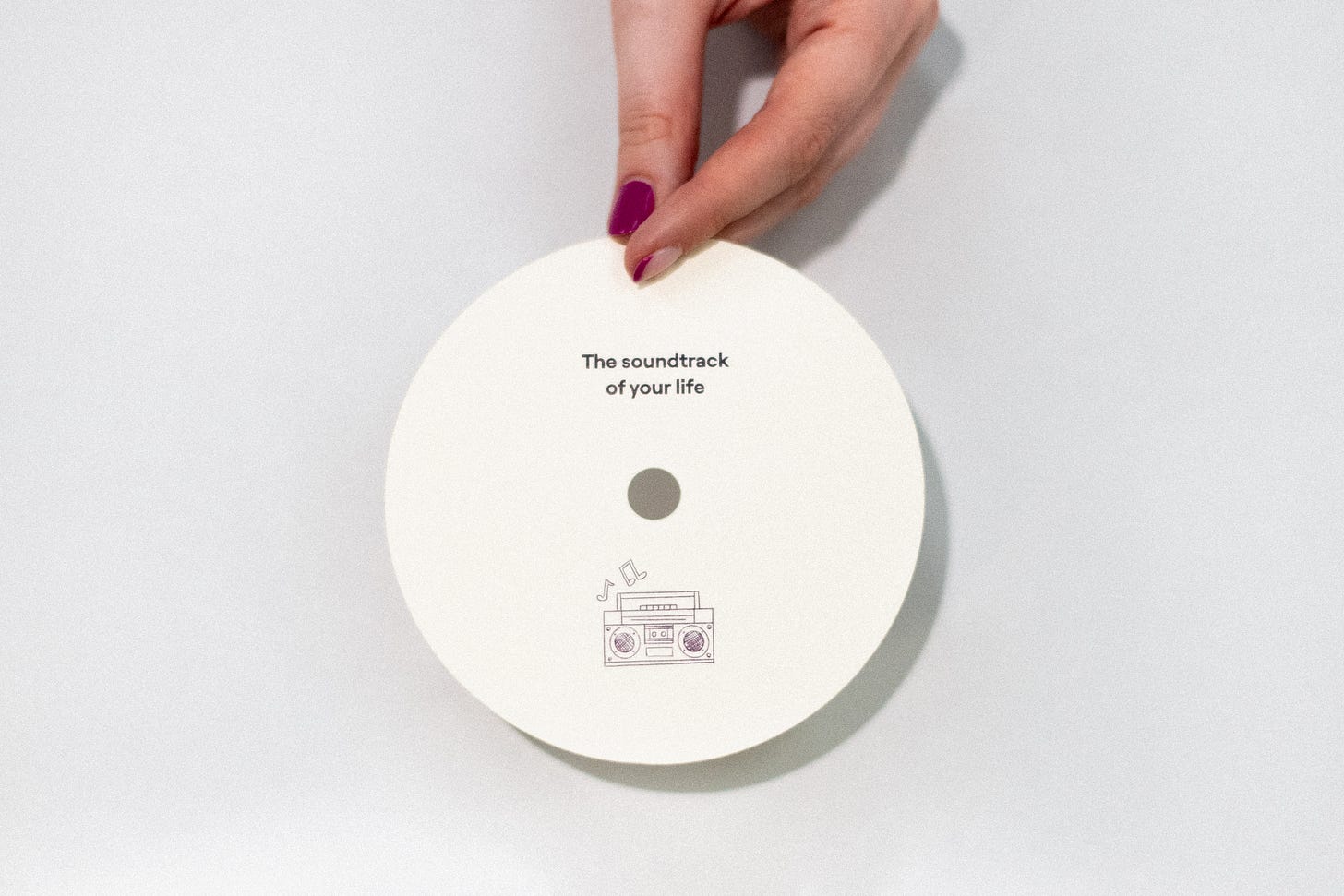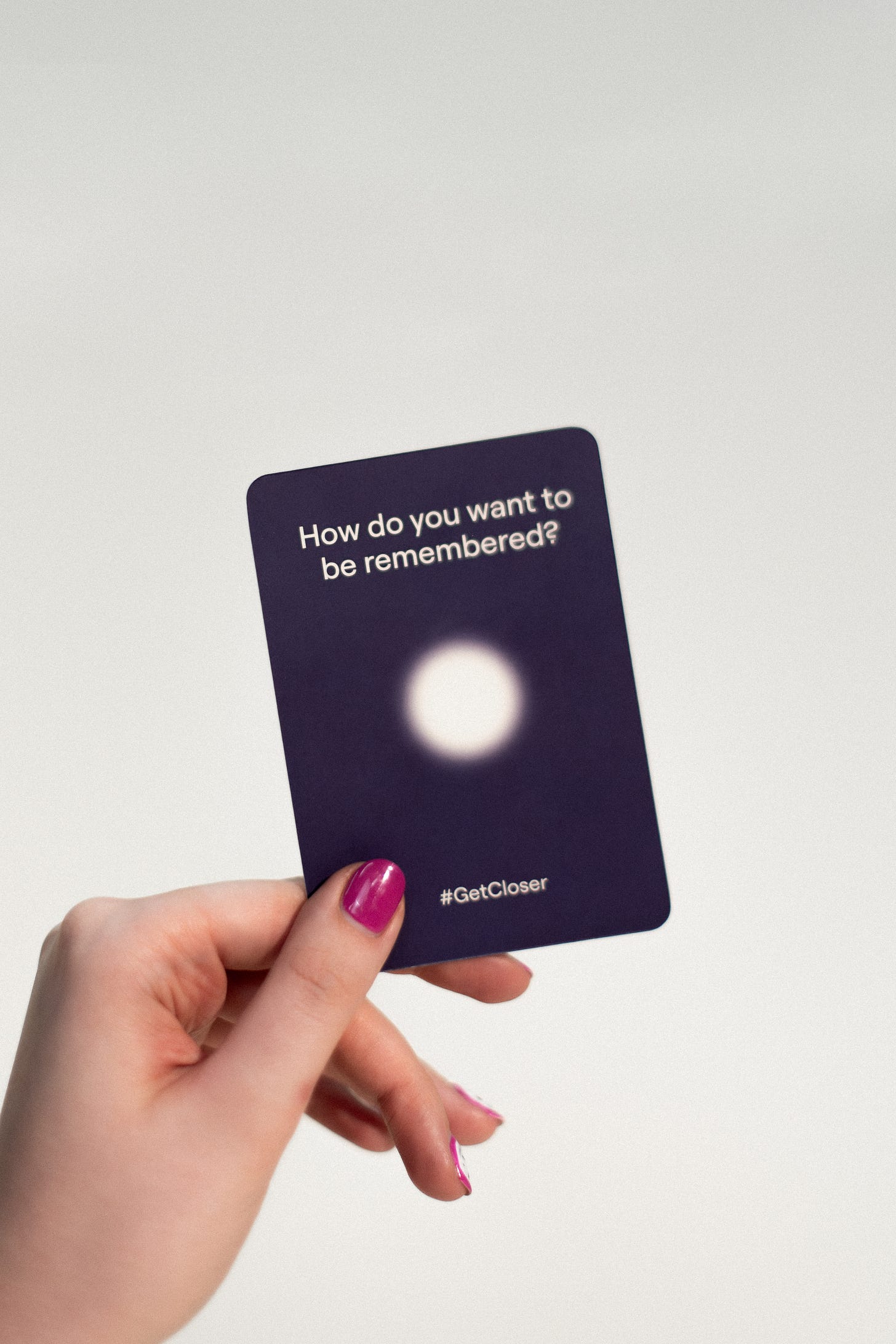A few years ago, marketer Eliza Elliott’s grandfather died suddenly in a routine operation on Christmas Eve. Although he was elderly, he was fit and healthy so it was still a huge shock to the family. But in the weeks that followed they found something that would connect them to him for the rest of their lives. A folder that he’d been adding to for years called “For When I’m Gone”.
“It contained all of the small but mighty acts that you’d usually think about for an estate plan,” explains Eliza. “The stuff he knew we would need in the weeks and months after his death to make our life easier – wills, life insurance, passwords and accounts. But it also contained the stuff he knew we’d want. Letters, funeral wishes (complete with strict instructions to include a comedy sketch, which we did), his desert island discs, the story of his life and the instructions on how to fix the leaky tap in the hallway (that only he knew how to fix).”
“It was (and is) the ultimate handover document that prepped us to take on a world without him. We still get it out to this day when the tap breaks.”
Eliza went on to join the team at Octopus Legacy as Head of Brand and Growth –(formerly Guardian Angel and one of our clients you might have heard us talk about on this newsletter) to help other people plan for the deaths of their loved ones. The founder Sam had experienced the impact of someone not leaving a legacy (his mother died unexpectedly in 2016) and made it his mission to make life easier for the people left behind. But Eliza had experienced the transformational impact that people can have when they do. So she wanted to bring her grandfather’s idea to life for more people.
When we started working on the strategy for the whole brand, they always talked about launching their version of the FWIG file alongside their primary online services. Something physical that would inspire their customers to think more meaningfully about death. It started conversations between our team of strategists and writers and continued with friends and family. What would we put in the box? What recipes defined our existence? Had we ever thought about leaving our social media passwords for the people we love? And helped us build a brand story around conversation and connection – creating a legacy that connected you to the people you love while you were here and when you’re gone.
Last month they launched the legacy box, although to us, it will always be thought of affectionately as the FWIG file. A place to gather the essentials that your loved ones need after your death together with the things that really matter. Stories, letters, photos. “Not everyone is as exceptional at planning as my Grandad was. This box is the prompt and invitation that the rest of us mere mortals need to shape these kinds of personal legacies.” There’s a dictaphone for leaving voicenotes and stories, a notebook for letters and thoughts, and connection cards that will prompt people to open up to their loved ones. This is something that will meaningfully impact people’s lives and connect the brand to customers for life.
To see them launch this activation is incredibly exciting. We asked Eliza to elaborate on the reason behind it, the purpose and how they’re measuring success.
The Interview
Our work together hung off this question: what will you leave behind? All about encouraging people to go beyond the practical stuff and really think about their legacy. What are your favourite features of the legacy box that encourage this and tell us about them.
As well as a space to store your key practical documents (like your will, life insurance documents, lasting power of attorney) we also wanted the box to be an invitation for people to leave behind something much more personal and meaningful.
We did some really interesting research on this and found that the things we miss the most about the people we love after they’ve died is their presence, their voice and their advice. Since we sadly can’t recreate their presence, we wanted to capture their voice and their advice in the box.
We’ve provided a dictaphone so that you can share messages and untold (or well-worn) stories for the people you love to have forever. We’ve also included cards where you can pen advice, messages, recipes and recall memories as well as store your photos.
Once filled the box acts as a time capsule for future you, a record of your love for the people you love for years to come.
Together we built a brand that was all around connection. And starting a conversation around death that could connect you to the people you love. While you were here and long after you’ve gone. How did you weave in those moments for connection in the box.
The box is one big invitation to connect with the people you love – it’s littered with space for you to explain why you’ve included what you’ve shared, to share you’re own leaky tap tips and for you to let the people you love know you’re thinking of them, even when you’re no longer there.
But we didn’t just want the box to be a way of connecting with the people you love when you’re gone. We knew, from experience, that some of the most connection-rich conversations happen when you dive into these sometimes daunting conversations.
That’s why we included the ‘Get Closer’ Cards – they’re conversation cards that are best enjoyed around a table with the people you know the best. They’re a chance to spark the kinds of connection-rich conversations you might never get to in the busyness of day-to-day life.
Do you imagine people buying it for themselves or to give to their family? How would you go about gifting this to someone sensitively?
This is hot off the press so we’re still early days, but what we’ve heard so far from customers is that this is something that they would both do for their own family, and ask their parents to fill in for them. Without context or explanation, this could be a slightly strange gift to receive.
So explaining why you’re giving it to them is key. Perhaps you want the practical plans to be sorted so that you can focus on what matters when they’re gone. Maybe it’s because you know what it’s like wishing you’d be able to hear their voice one more time, or recreate their famous dhal and you want to avoid experiencing that again with them.
Or because it is easier to have this conversation ahead of time, before it gets too real.
You might not have that luxury and you know that this will make the next few months and years easier when they’re gone.
Making it about you and the impact that it will have always helps…After all, if you're giving this to someone, it’s really a gift for you. But this doesn’t need to be a solemn and sincere task – the box is packed with prompts that will have you wondering if you even know the people you’re closest to (in the best way).
Have you set targets and KPIs for the box? Sounds weird to say, but just wondering how you went about thinking about and deciding whether you should put the time and money into creating it?
At Octopus we believe very strongly that companies that behave in a more human way than their competitors will ultimately succeed in winning customer trust, loyalty and love – which is, after all, good for business.
As a business with a mission to make life simpler for those left behind after a loss, just providing cold legal documents to help support our customers and their families though this time is never going to cut the mustard.
As a team of people who’ve experienced the importance of a practical and emotional plan – and what it’s like there isn’t one – we knew we wanted to help inspire other people to put these practical plans and emotional mementos in place. We know that these don’t just make life easier but they can actually help us process our grief and connect us with the person we love, even after they’re gone.
We’ve set clear targets to measure engagement, purchase intent and awareness around the launch of this box to enable us to scale in the future.
The Prompt
We asked Eliza to share five meaningful ways that you can open up the conversation about death with your loved ones.
These conversations are always harder to start than they are to have. Diving in the deep-end can feel a bit daunting, but sharing a question is always a good place to start:
What is the soundtrack of your life?
How do you want to be remembered?
Is there a secret you don’t want to take to your grave?
If you could give one piece of advice what would it be?
What do you want to leave behind?
The Vortex
Ready to start the conversation? Here’s the Octopus Legacy box.
Ologies with Allie Ward is one of our favourite podcasts (that we wrote about in our vortex newsletter, if you missed it). In this episode she talks to thanatologist Cole Imperi and death worker about the science of death, eco burials, and how to regret less.
Palliative care nurse Bronnie Ware wrote about the top five regrets of the dying. Number one? “I wish I’d had the courage to live a life true to myself, not the life others expected of me.” She wrote a book about it. Here’s the quick version.
We were inspired by We’re Not Really Strangers card game when creating the Octopus Legacy brand and love what they do. Especially the way they activate the brand on social.
More connection cards, but this time on relationships. My partner and I played this, isolating during covid and I posted it on instagram. SO many people wanted to buy them. It’s worth it.
Read our case study on Octopus Legacy here. And more on brands breaking taboos below.
Brands breaking taboos
When we wrote about A Fucking Magazine by Feeld last week it nudged something in my brain. A meeting, around the time we started S&T in 2019 with the editor of – back then – a relatively new dating app Feeld that was a safe space for exploring kink and, largely, threesomes. (It started as 3nder before a lawsuit from Tinder). I remember downloading it, s…

